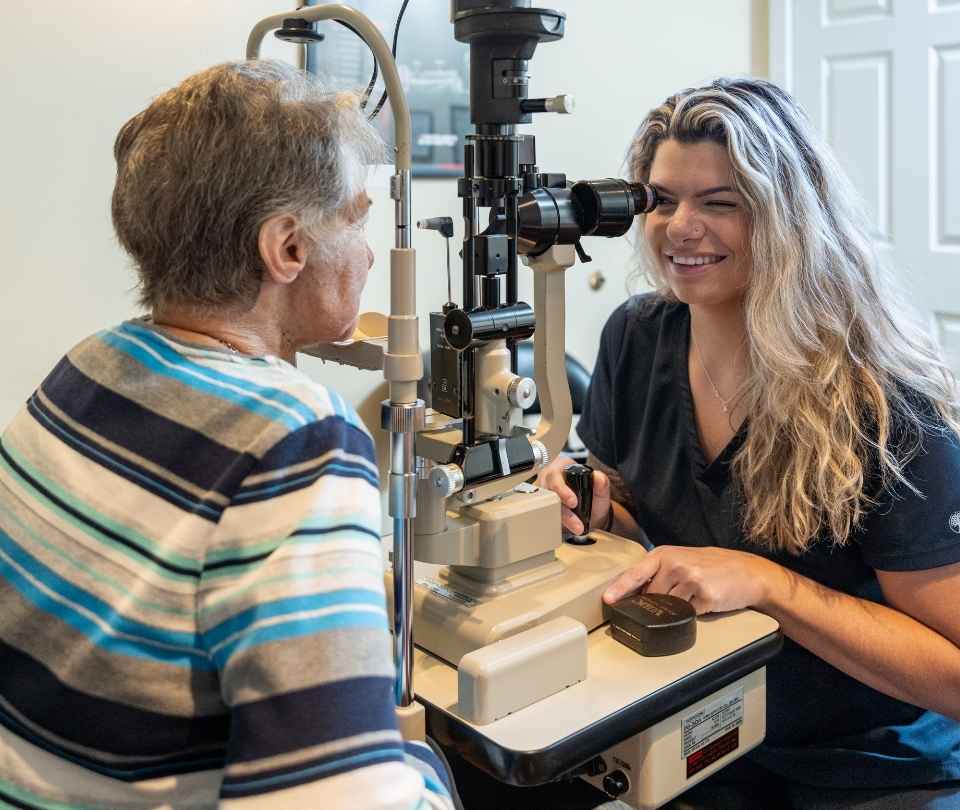Understanding Diabetic Retinopathy


Request an Appointment
Diabetic Retinopathy is one of the most common complications of diabetes, arising from the damage that elevated blood sugar levels inflict on the tiny blood vessels supplying the retina. The retina, the tissue responsible for capturing light and transmitting visual signals to the brain, is especially vulnerable to the harmful effects of uncontrolled diabetes. Over time, the weakened vessels may leak fluid or blood, setting off a chain reaction that can ultimately impair vision. At Retina Associates Of Greater Philadelphia we provide advanced eye care at our 5 convenient locations in Philadelphia, North Wales, King of Prussia, Plymouth Meeting, & Sewell.
How Diabetes Affects the Retina
Diabetes damages the retina by affecting the small blood vessels that supply it with oxygen and nutrients. Over time, high blood sugar levels weaken these blood vessels, making them more prone to leaking, swelling, or becoming blocked. This process leads to a condition called diabetic retinopathy, which can progressively impair vision and, if untreated, cause blindness. The damage occurs in stages, from early mild changes to severe retinal complications that threaten sight.




How Quickly Does Retinal Damage Develop?
The timeline for diabetic retinal damage varies from person to person. However, studies show that after 20 years of diabetes:
The Role of Our Retina Specialist in Preventing Vision Loss from Diabetic Eye Disease
Diabetic eye disease, including diabetic retinopathy and diabetic macular edema (DME), is a leading cause of vision loss in people with diabetes. However, with early detection, proper management, and timely treatment, vision loss can often be prevented or minimized. Our retina specialist plays a crucial role in protecting your sight by providing expert evaluation, advanced diagnostic testing, and state-of-the-art treatments tailored to your specific needs.


Nonproliferative Diabetic
Retinopathy (NPDR)
Nonproliferative Diabetic Retinopathy (NPDR) is the earliest stage of diabetic retinopathy, where damage to the retinal blood vessels occurs but without the growth of new abnormal vessels. It is the most common form of diabetic retinopathy and can range from mild to severe. While NPDR may not initially cause noticeable vision changes, it can progress and lead to more serious complications, including diabetic macular edema (DME) and proliferative diabetic retinopathy (PDR), which pose a greater threat to vision.
Question and Answer on Diabetic Retinopathy
Your Trusted Retina Specialists Serving The Greater Philadelphia Area
At Retina Associates Of Greater Philadelphia, we understand how crucial it is for patients with diabetes to care for their eye health. Don’t let diabetic retinopathy sneak up on you; regular appointments can help ensure early detection and treatment. Our experienced retina specialists are ready to partner with you in preserving your vision through personalized care. Schedule an appointment with our retina specialists in Philadelphia, North Wales, King of Prussia, Plymouth Meeting, & Sewell, NJ.
Request an Appointment
- Branch Retinal Vein Occlusion (BRVO)
- Diabetic Retinopathy
- Macular Telangiectasia
- Macular Degeneration
- Macular Hole
- Retinal Vascular Occlusions
- Sudden Vision Changes and Retina Health
- Central Retinal Vein Occlusion (CRVO)
- Central Serous Chorioretinopathy (CSCR)
- Macular Pucker
- Retinal Detachment
- What Do Retina Specialists Treat?
- Retinal Tears
- Plaquenil Toxicity
- Retinitis Pigmentosa
- Advanced Retina Care
Here’s the thing about retina care, it often requires frequent visits. That’s why we’ve made it a priority to be nearby when you need us most. With offices in King of Prussia, Philadelphia, North Wales, Plymouth Greene, and Sewell, we’re close to where life happens. Patients from Northeast Philly, Cherry Hill, Bensalem Township, Vineland, Norristown, and Lansdale count on us because we’re just a short drive away.
